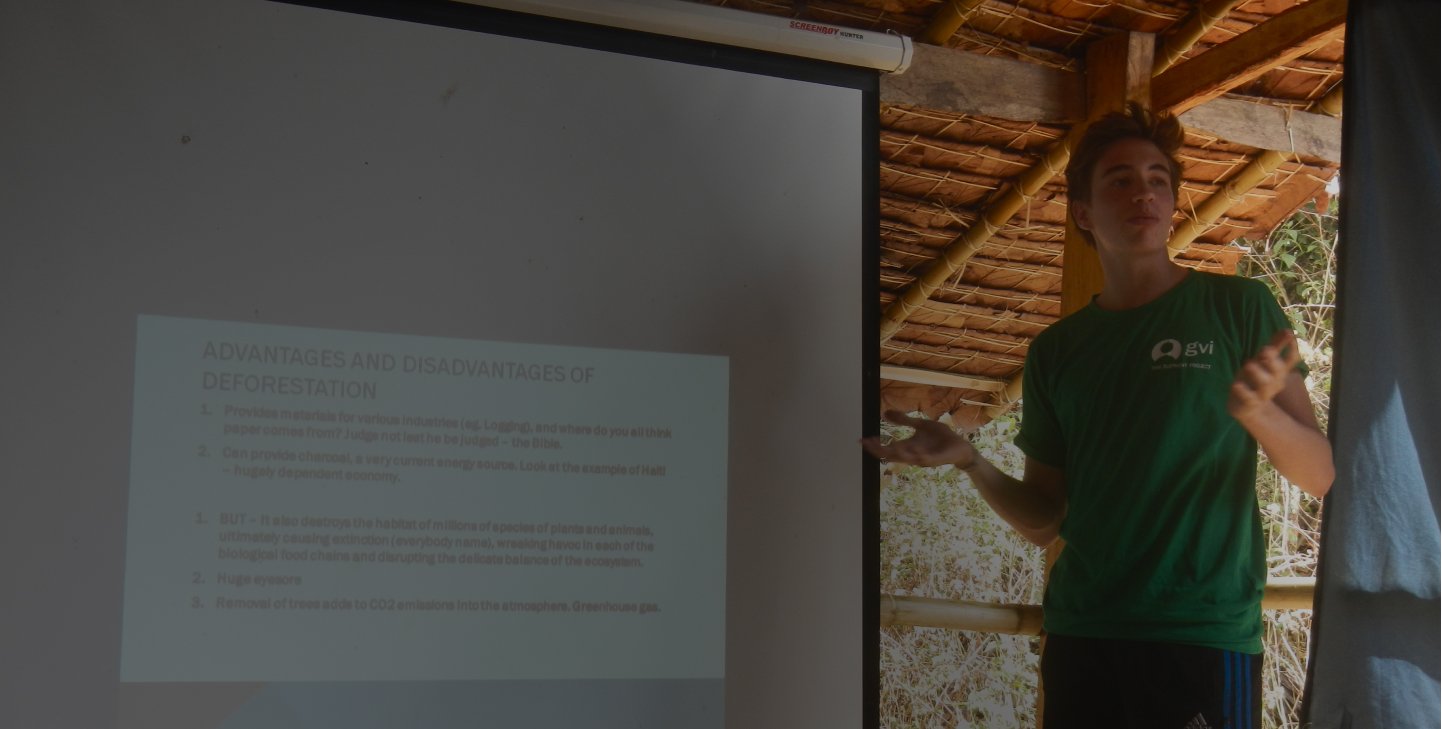Master your research.
Get published.
Research fellowships
5 reasons research fellowships are for you
1
Contribute to research
abroad and get published
abroad and get published
2
Complete your thesis
or dissertation
or dissertation
3
Get guidance from
expert supervisors
expert supervisors
4
Gain access to
data sets
data sets
5
Live on a remote
research station
research station
Finish your thesis, dissertation or research paper
1
Collect data in
remote habitats
remote habitats
2
Conduct research through
different techniques
different techniques
3
Analyse data and
interpret results
interpret results
4
Present findings in
report and presentation
report and presentation
Choose between two types of research projects
Flagship research project
Contribute to existing, ongoing research projects and assist GVI and our partners with general conservation monitoring efforts.
Independent research project
Complete your studies by conducting your own research that aligns with the topics and data that GVI and our partners have available.
Backed by science
Contribute to a 25-year legacy of scientific research by gaining access to GVI’s exclusive data sets and expertise.
View our publications on Google Scholar.
View our publications on Google Scholar.
Cutting edge science. Published
research. Maximum impact.
Guided by expert supervisors
Stand out from the crowd
Conservation skills
- Survey techniques
- Climate change impact
- Fauna and flora identification
- Biodiversity and ecology
Leadership skills
- Project management
- Critical thinking
- Resilience
- Time management
Soft skills
- Cultural awareness
- Interpersonal skills
- Communication
- Teamwork
Raise your academic profile
When you complete an internship of 12+ weeks, we guarantee you’ll secure an impact-driven position within 18 months (or we’ll return 50% of your program fee). View our career guarantee.
You'll also get:
- Weekly group sessions
- Research supervisor guidance
- Research fellowship training
- Job portal access
- Career coaching sessions
- Career course
- LinkedIn reference
Explore your options. Discover more programs.
4–24 weeks
2-24 weeks
24 weeks
Professional
apprenticeships
apprenticeships
Get a three month placement to work for a conservation partner.


































